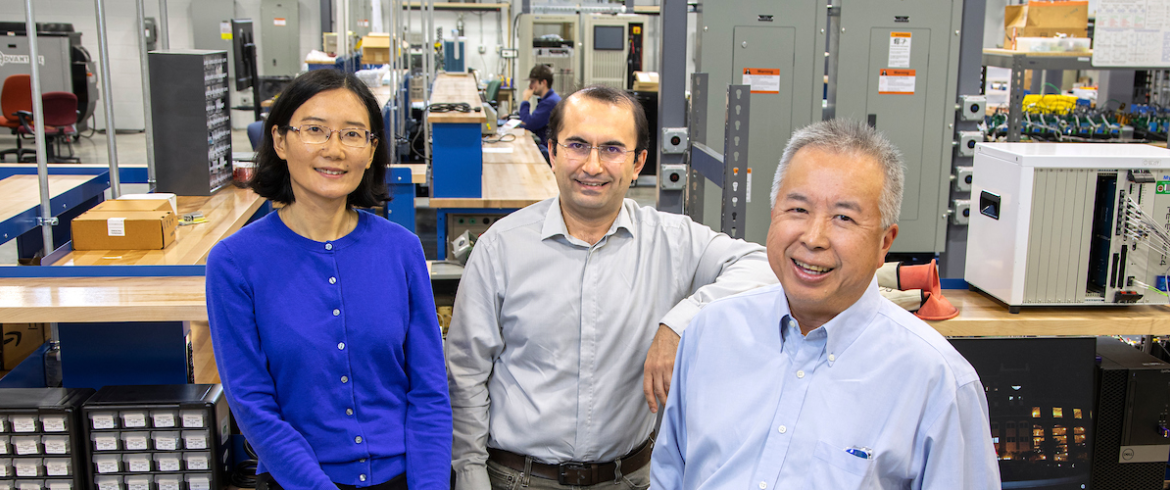
From left, Yuan Li, an assistant professor of Electrical and Computer Engineering; Eren Ozguven, associate professor in Civil and Environmental Engineering; and Simon Foo, a professor of Electrical and Computer Engineering at the FAMU-FSU College of Engineering. The trio have been working on the project of studying modular photovoltaic energy systems to help restore power quickly after natural disasters. (Mark Wallheiser/FAMU-FSU College of Engineering)
A team of researchers from the FAMU-FSU College of Engineering is developing a modular solar electricity system that can help communities keep electricity flowing during natural disasters.
The work is part of a U.S. Department of Energy (DOE) initiative known as the Renewables Advancing Community Energy Resilience (RACER) program, which aims to increase resilience to disasters by using renewable energy. DOE dedicated $33 million to funding 20 research projects across the country for research to help communities plan their transition to a clean energy future and improve grid reliability and security. This project will receive $3 million in funding.
“Extreme weather can knock power out for a few days, especially if it damages crucial parts of electricity infrastructure,” said Yuan Li, an assistant professor in the Department of Electrical and Computer Engineering who is leading the project. “Our solution is to develop a system that duplicates that crucial infrastructure as many submodules, so an electric system can keep working even if part of it is compromised.”
Li and her team are developing lightweight, compact inverters for solar power plants. The inverters, which convert direct current to alternating current, help regulate the flow of electricity from power plants to the electric grid. They are small enough that a team of two people can set them up without heavy equipment, allowing solar power plants to quickly restore electricity in the wake of disruptions, such as the hurricanes that batter Florida during the summer.
This inverter will have identical modules that handle different sections of a solar power plant. If severe weather damages part of the inverter, the remaining modules will continue functioning. The technology also allows workers to replace the failed part while the rest of the inverter system is generating power.
Along with fellow faculty members from the Department of Electrical and Computer Engineering, the team includes researchers from the college’s Resilient Infrastructure and Disaster Response Center and Florida State University’s Center for Advanced Power Systems. They also will work with the City of Tallahassee, Northeastern University and the National Renewable Energy Lab on the project.
“Building community resilience to handle natural disasters is an interdisciplinary problem,” said project member Simon Foo, a professor in the Department of Electrical and Computer Engineering. “Disaster affects so many aspects of a community, so our response to it needs to take that into account.”
